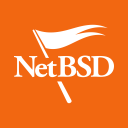PINE A64 Software Releases
Jump to navigation
Jump to search
Note that the PINE A64(+) images are not compatible with the PINE A64-LTS due to LPDDR3 memory configuration. For PINE A64-LTS, please use the SOPINE Software Releases
Linux
Special thanks to Sunxi community and longsleep for their contributions
Below you will find useful links to various resources and forum threads:
- Sunxi PINE64 Page
- Longsleep BSP Linux Builds Download Page
- Longsleep BSP Linux Kernel Thread on PINE64 Forum
- Longsleep BSP Xenial Thread on PINE64 Forum
- Longsleep BSP Arch Linux Thread on PINE64 Forum
Armbian
Armbian Debian Buster for XFCE Desktop Usage
- Armbian provides a mainline kernel build images for Debian Buster
- Suitable for 512MB/1GB/2GB PINE A64(+) Boards
- DD image (for 8GB microSD card and above)
- To find out more about Armbian and available options please visit their site
- Setup SOPINE Armbian LCD and Camera
Armbian Ubuntu Bionic for XFCE Desktop Usage
- Armbian provides a mainline kernel build images for Ubuntu Bionic
- Suitable for 512MB/1GB/2GB PINE A64(+) Boards
- DD image (for 8GB microSD card and above)
- To find out more about Armbian and available options please visit their site
- Setup SOPINE Armbian LCD and Camera
Armbian Debian Buster for Server and Light Desktop Usage
- Armbian provides a mainline kernel build images for Debian Buster
- DD image (for 8GB microSD card or eMMC Module and above)
- To find out more about Armbian and available options please visit their site
Armbian Ubuntu Bionic for Server and Light Desktop Usage
- Armbian provides a mainline kernel build images for Ubuntu Bionic
- DD image (for 8GB microSD card or eMMC module and above)
- To find out more about Armbian and available options please visit their site
Armbian Ubuntu Focal for Server and Light Desktop Usage
- Armbian provides a mainline kernel build images for Ubuntu Focal
- DD image (for 8GB microSD card or eMMC module and above)
- To find out more about Armbian and available options please visit their site
AOSC
- To learn more about AOSC, please visit the official AOSC website
- AOSC using LZ4 compression algorithm, please visit the LZ4 github site for utility
- 8GB microSD card and above
- Login with
- username: aosc
- password: anthon
AOSC MATE Community Build Image [microSD Boot]
AOSC XFCE Community Build Image [microSD Boot]
AOSC LXDE Community Build Image [microSD Boot]
Fedora Base Image
Fedora 32 Minimal Build Image [microSD Boot]
- Suitable for 1GB/2GB PINE A64+ Board, not advise to run on 512MB PINE A64 Board
- Fedora 32 with kernel from Armbian 5.7.15 (minimum build)
- DD image (for 8GB microSD card and above)
- MD5SUM: 6b9c9fd83a7c0c094efb569dc7fe90df
- Fedora 32 Minimal Download
- Login with
- username: root
- password: fedora
Fedora 32 Server Build Image [microSD Boot]
- Suitable for 1GB/2GB PINE A64+ Board, not advise to run on 512MB PINE A64 Board
- Fedora 32 with kernel from Armbian 5.7.15 (server build)
- DD image (for 8GB microSD card and above)
- MD5SUM: df868e4022726b9326ea52bae1cd9008
- Fedora 32 Server Download
- Login with
- username: root
- password: fedora
Fedora 27 and 28 Image
Please follow this PINE64 forum post for Fedora 27 bring up and update to Fedora 28 on this thread
openSUSE
oepnSusu Tumbleweed Community Build Image [microSD Boot]
- DD image to microSD card and boot. Highly recommend using Etcher
- This is headless build, please use serial console or SSH to configure
Please follow this https://en.opensuse.org/HCL:Pine64 openSUSE wki site] or bring up, upate and discussion
OpenWRT
OpenWRT Community Build Image [microSD Boot]
- DD image to microSD card and boot. Highly recommend using Etcher
- This is headless build, please use serial console to configure
- Login with
- username: [not available]
- password: passwd
Volumio 2 Digital Audio Player
Volumio 2 Digital Audio Player [2.863-2020-12-23]
- This version works with (Spdif / Coaxial / RCA).
- You need to enable Volume Normalization in the Playback Options to fix sound low.
- supports booting from eMMC and SD card.
- supports a select number of simple I2S DACS. tested with the Pine64 DAC POT, a wired ES9023 DAC module and a pcm5121 DAC module.
- Volumio is a linux-based headless DAP (digital audio player), which connects to your home stereo system or your DAC
- Visit the project's website here
- DD image (for 8GB microSD card and above)
- Login with
- Username: volumio
- Password: volumio
- Volumio is controlled using a Web-GUI which can be accessed via a web browser using the boards IP or volumio.local/
FreedomBox
Stable built
- DD image to microSD card. Highly recommend using Etcher
- This is a headless build, not HDMI output.
- Please plug-in Ethernet cable first before initial power up. After power up for 10 minutes, using browser and type in https://fredombox.local to setup. Browser may warms for unsecure site and please proceed with exception.
- Freedom Manual: https://wiki.debian.org/FreedomBox/Manual
- For more information about FreedomBox, please visit https://www.freedombox.org
- Direct download from FreedomBox site
- File Size: 418MB
- Direct download from FreedomBox site
motionEyeOS
- motionEyeOS is a Linux distribution that turns a single-board computer into a video surveillance system. The OS is based on BuildRoot and uses motion as a backend and motionEye for the frontend
- Visit the motionEyeOS GitHub and its GitHub Wiki for more information
- Suitable for 1GB/2GB PINE A64(+) variants
- DD image (for 8GB microSD card and above)
- Login with
- Username: admin
- Password:
- There are 2 ways to interact with the OS:
- Scan for its IP with hostname MEYE-* and go to the admin web interface https://[PINE A64(+) motionEyeOS IP Address] and after login, you should able to see the output of the CAMERA MODULE on the web interface
- Use the PINE64 USB SERIAL CONSOLE/PROGRAMMER and login
DietPi
- DietPi is a lightweight, yet easy to setup and feature-rich Linux distribution, based on Debian.
- To find out more about DietPi, please visit the official documentation.
- Discuss the PINE A64 build on the PINE64 forum thread.
- DD image (for 4 GiB micro SD card and above)
- Login with
- Username: root
- Password: dietpi
LibreELEC(KODI)
Nightly Build Image [microSD Boot]
- DD image to microSD card and boot. Highly recommend using Etcher
- Suitable 512MB PINE A64 Board
- Suitable for 1GB/2GB PINE A64+ Board
- Pine A64+ build direct download from Libreelec nightly build site and look for LibreELEC-A64.arm-9.80-nightly-xxxxxxxx-xxxxxxx-pine64-plus.img.gz
- FEATURES:
- mainline kernel & U-Boot
- latest Kodi
- HDMI CEC
- multi channel HDMI audio (correct audio output must be selected)
- IR receiver
NEMS Linux
https://files.pine64.org/sw/pine64_installer/json/nems.jpg
- NEMS stands for "Nagios Enterprise Monitoring Server" and it is a modern pre-configured, customized and ready-to-deploy Nagios Core image designed to run on low-cost micro computers.
- To find out more about NEMS on the PINE64 and available tweaks to the installation please visit the PINE64 forum thread
- Suitable for 512MB/1GB/2GB PINE A64(+) variants
- Login with
- Username: nemsadmin
- Password: nemsadmin
- Installation Guide
- To find out more on NEM Linux, please visit their site
NEMS Linux [v1.5 - Build 1]
- DD image (for 16GB microSD card and above)
- Download torrent seed from NEMS Linux
- Direct download from pine64.org
- MD5 (XZ file): ac508549a829021491cfa23aeb18a063
- File Size: 2.66GB
BSD
NetBSD
NetBSD Community Build Image [microSD Boot]
- To learn more about NetBSD please visit NetBSD main page
- DD image to microSD card or eMMC module. Highly recommend using Etcher
- Console and SSH default login:
- username: root
- password: [none]
- Instructions concerning enabling SSH can be found here
Windows 10 IoT
- PINE64 Win10 IoT build already passed the Microsoft Azure certification
- For step by step installation process, please follow this github link
- For release note, please follow this github link
- For Microsoft Azure IoT SDKs, please follow this github link
Win10 IoT [10.0.15063.0_20170602]
- 10.0.15063.0_20170602
- Update Notes since 10.0.15063.0_20170524:
- Fix the failure of default application installation caused by a app certification issue
- Fix that the default application cannot start automatically after installation
- Fix Ethernet initialization problem and now the Ethernet will start successfully every time
- Enable the usermode access for all unusable GPIO pins in Pi-2 bus( later provide a UWP sample to show how to control these pins )
- Extra Notes:
- If you want to connect a USB peripheral for extension, please connect a USB hub to the lower USB interface as the medium
- Please refer to Part 2 of chapter 3: Debug with a virtual net over USB on how to use the upper USB interface
- Update Notes since 10.0.15063.0_20170524:
- 10.0.15063.0_20170524
- Some Updates:
- Update the OS version to build v.10.0.15063.0 (Creators Update)
- New page style of Device Portal, visit https://deviceipaddr:8080 to check it
- Built-in Cortana assistant, need to be enabled in settings page in default app and Device Portal
- Support on-screen keyboard, need to be enabled in Device Portal
- Enable 100M Ethernet and fix some bugs
- Support built-in UART bus in A64 SoC(not built in the ffu, later provide driver binary and deployment helper)
- Support built-in IR module in A64 SoC(not built in the ffu, later provide source code and dev doc for developers in community)
- Known Issues:
- Kernel debug is enabled by default. This will slow the bring-up process. If a kernel debug is not necessary for you, visit Device Portal and navigate to Processes->Run Command page, run this command to disable:
- Bcdedit /store C:\EFIESP\EFI\Microsoft\boot\BCD /set {default} debug off
- An PnP bug in audio device may cause a blue screen when acting software shutdown
- Ethernet device may not start with problem code 12 at the first time to bring up
- Kernel debug is enabled by default. This will slow the bring-up process. If a kernel debug is not necessary for you, visit Device Portal and navigate to Processes->Run Command page, run this command to disable:
- Some Updates:
- Windows IoT Direct Download from pine64.org
- MD5 (FFU file): ACA617C0C9CEDA705DD510BF041E79B4
- File Size: 957MB
Linux BSP SDK
Linux BSP Kernel 4.9
- Direct Download from pine64.org
- MD5 (TAR-GZip file): 7736e3c4d50c021144d125cc4ee047a4
- File Size: 5.40GB
Android SDK
Android Oreo [v8.1]
- Direct Download from pine64.org
- MD5 (TAR-Gzip file): b0394af324c70ce28067e52cd7bc0c87
- File Size: 24.94GB









